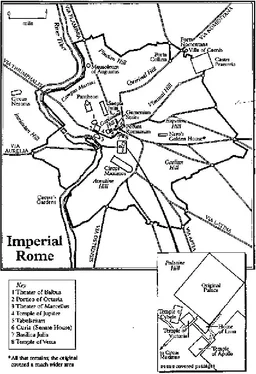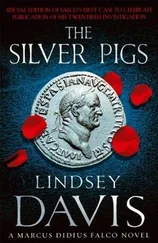Lindsey Davis - The course of Honor
Здесь есть возможность читать онлайн «Lindsey Davis - The course of Honor» весь текст электронной книги совершенно бесплатно (целиком полную версию без сокращений). В некоторых случаях можно слушать аудио, скачать через торрент в формате fb2 и присутствует краткое содержание. Жанр: История, на английском языке. Описание произведения, (предисловие) а так же отзывы посетителей доступны на портале библиотеки ЛибКат.
- Название:The course of Honor
- Автор:
- Жанр:
- Год:неизвестен
- ISBN:нет данных
- Рейтинг книги:5 / 5. Голосов: 1
-
Избранное:Добавить в избранное
- Отзывы:
-
Ваша оценка:
- 100
- 1
- 2
- 3
- 4
- 5
The course of Honor: краткое содержание, описание и аннотация
Предлагаем к чтению аннотацию, описание, краткое содержание или предисловие (зависит от того, что написал сам автор книги «The course of Honor»). Если вы не нашли необходимую информацию о книге — напишите в комментариях, мы постараемся отыскать её.
The course of Honor — читать онлайн бесплатно полную книгу (весь текст) целиком
Ниже представлен текст книги, разбитый по страницам. Система сохранения места последней прочитанной страницы, позволяет с удобством читать онлайн бесплатно книгу «The course of Honor», без необходимости каждый раз заново искать на чём Вы остановились. Поставьте закладку, и сможете в любой момент перейти на страницу, на которой закончили чтение.
Интервал:
Закладка:
TWENTY-FOUR
The search for a new wife for Claudius was conducted on brisk official lines. His Chief Ministers each selected a candidate, whose merits they set out in elaborate position papers, which were debated at a formal meeting with the Emperor in the chair. This system seemed no worse than granting free rein to the ludicrous eccentricities of personal taste.
Narcissus supported: Candidate A, Aelia Paetina; married to Claudius once before, she was the mother of his daughter Claudia Antonia—the sound, no-nonsense, known-quantity candidate.
Callistus supported: Candidate B, Lollia Paulina; an extremely beautiful woman, she had married Caligula briefly, though under duress—the brilliant and popular candidate. She was fabulously wealthy too. Lest anyone doubt it, when she went to a dinner party covered in jewels she took the bills of sale to prove what her gemstones had cost.
Pallas supported: Candidate C, Agrippina; Claudius' niece. She was Caligula's sister, one of the famous three—the underhand, dangerous, dark-horse candidate. She had a son, Domitius Ahenobarbus, so she had proved her fertility. Her ambitions for that son were likely to be ferocious—but then Claudius had a son of his own, Britannicus.
It was illegal for an uncle to marry his niece, so Claudius did just that.
"That's the trouble with formal meetings." Narcissus sighed despondently. "Either no decision at all, or the worst choice on the Chairman's casting vote."
* * *
It was when Agrippina married Claudius, as a sense of impending doom depressed her, that Caenis deliberately made a decision that surprised some of her friends. There was a knight she knew privately, Marius Pomponius Gallus, a good-tempered, decent, thoroughly amusing man. Narcissus had introduced them. For several years past Marius had been asking her to marry him. Quite suddenly, Caenis agreed. He had in fact asked her the first time they went to bed. This burst of initial enthusiasm later faded to a good-mannered routine; he was more startled than anyone when she did say yes. But he received the news stoically, and they began to look for dinner bowls and napkin sets.
A couple of years later, luckily before Agrippina really made her presence felt, Flavius Vespasianus was elected to a consulship. That same year, still intending to marry Caenis, Marius Pomponius Gallus unexpectedly died.
It all seemed sadly unimportant. Caenis knew she could have turned Marius into a bridegroom—quite a keen one—if she had wanted; she realized that what she had really been looking forward to most was a home of her own instead of the inelegant apartments where she had lived ever since Antonia died. She wanted peace and permanence, and on a long lease. So with the help of Narcissus, who was generous with money and time, she found a site and had built for herself a substantial, tasteful house, which she would own until she died.
Her new home lay just outside the northeast city boundary, on the Via Nomentana. The site was not well chosen, since it was right beside the huge Praetorian Camp, built for the Guards by Sejanus. The location caused her constant teasing from her friends. Still, she was spared from enduring neighbors. And there would never be burglaries or riots.
Narcissus had given her a steward: Aglaus. Caenis first inspected Aglaus in the wild garden at Narcissus' own private house. She knew better than to accept a gift from a minister of state sight unseen.
Narcissus' gardens, though enclosed on all sides by the wings of his mansion, were as spacious and well designed as any public park. The noise of the city was muffled by trees. Songbirds clustered in the bushes and bounced about the gutters of the house; there were white doves basking on the pantiles of the roof. The wild garden was full of water: rectangular pools where stone nymphs with calm, regular faces looked down into the reeds among whose wiry clumps moved contemplative fish; fountains everywhere; and streams that wriggled through casual arrangements of shrubs to splash into shell-shaped porphyry bowls. Sometimes at night little candles were set afloat like stars in these bowls. At every turn stood a bench or seat; every bench had a pleasing view.
There was another more conventional garden, with neat borders set with hedges of trimmed rosemary, grave statues of the imperial family that studded formal acanthus beds, and cypress trees bristling at intervals like a military guard along the fine-grained gravel paths. That was a place to take foreign ambassadors. This was for friends.
Caenis and Narcissus relaxed on a stone seat among the arching fronds of an abutilon, with their feet on the edge of a pond. It was late in the year. Caenis was still in mourning. She wrapped her head in a dignified white mantle and hoped to impress her new slave. They watched him approach: not quite in his twenties, short as all Palace slaves were and slightly rickety, a lean face with a blue chin. He had a way of looking at people too directly, which Caenis recognized; he was brave to the verge of revolt. If he chose, he would do his work well in a defiant, offhand way; handled wrongly he was at an age where he could soon be written off as insubordinate and sold to a lupin-seller.
Narcissus let him stand.
"This is Antonia Caenis, an important freedwoman of the imperial family."
No sign of recognition; he was definitely surly. She let him see her weighing him up, then spoke in her calm, trained voice. "Aglaus, isn't it? What's his work like, Narcissus?"
"He's lazy, sly, and insolent," Narcissus replied cheerfully. "They all are nowadays. Don't expect our standards anymore." He was well aware Caenis would think the belligerent lad worth saving: so like herself at the same age.
"Tell me, Aglaus; are you ambitious?"
"Yes, madam." He spoke with the weary indifference of someone giving the answers he knows to be correct.
Caenis pinched her mouth. "Then you have a rare choice. I need a steward. Your chance to be in charge."
Now the lad put his shoulders back and began to act on his own behalf. Obviously he had thought this through. "The penalty, I suppose, is a mistress who knows all the dodges herself? Safe enough if I know before I start! I suppose madam will have a front door with a bronze seahorse knocker, and closed shutters shading all her rooms?"
This was rather quaint for Caenis, but she understood what he meant. "Naturally! Dried flowers, tiny portions at table, all the servants creeping around in soft felt shoes."
Narcissus gave vent to his awful laugh.
"Men visiting?" interrogated the slave. He certainly had a cheek.
"Not often," she returned placidly, retreating from the thought of Marius.
"Women, then?"
"Not if I can help it. And unless you ask my permission, neither will you! Nor do I want smooth-faced altar boys from the Temple of Ganymede loitering around my kitchen door."
His impertinence, far from enraging her, was winning her interest. She could not bear people in her home who lacked character. He was deliberately trying out how far he could go, his lip curling into a sneer that would do well for suppressing butchers who overcharged. "Keep leaky lapdogs? Tame ducks? Crocodiles? "
"No," Caenis responded briefly. "Whose interview is this?"
"Mine, I hope." Aglaus was forthright. "You can sell me; I'll be stuck."
Caenis turned to Narcissus dispassionately. "No harm in spirit, but will he be polite to my friends?"
"Yes, madam!" said the slave, smirking. She guessed he did not want to work for a woman; she did not blame him for that, since with the rare exception of Antonia, neither did she.
The chance of responsibility was tantalizing him. He declared, "I'll risk it. I'll take the post."
Читать дальшеИнтервал:
Закладка:
Похожие книги на «The course of Honor»
Представляем Вашему вниманию похожие книги на «The course of Honor» списком для выбора. Мы отобрали схожую по названию и смыслу литературу в надежде предоставить читателям больше вариантов отыскать новые, интересные, ещё непрочитанные произведения.
Обсуждение, отзывы о книге «The course of Honor» и просто собственные мнения читателей. Оставьте ваши комментарии, напишите, что Вы думаете о произведении, его смысле или главных героях. Укажите что конкретно понравилось, а что нет, и почему Вы так считаете.












